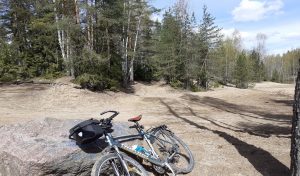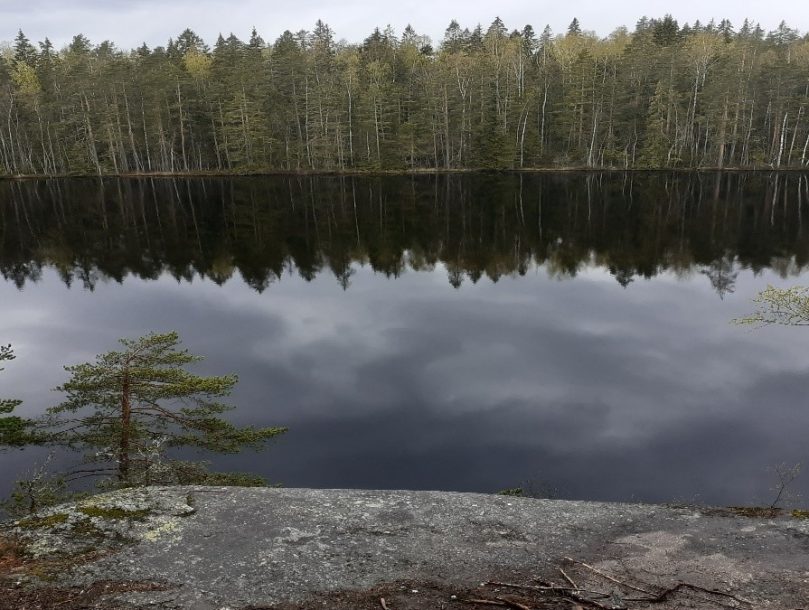At the same time as our internships ended, the COVID-19 pandemic put people’s everyday life to a grinding halt all over the world. This, however, should not pose a problem for Adventure Education students.
Aatu Rönkkö & Kalev Kello
After the first practical training period, Adventure Education students of 2019 were ready to return back home to the campus and amongst our studies. After spending four months in a solitude of the arctic wilderness, I was personally waiting eagerly to see my friends again, but it just so happened, that now I would have to wait for another few months. At the same time as our internships ended, the COVID-19 pandemic put people’s everyday life to a grinding halt all over the world. This, however, should not pose a problem for Adventure Education students.
Adventure requires the ability to adapt in a wide variety of conditions. For a situation like this, adaptability is the key element for getting through these times of disruption and uncertainty. This situation is unique in many ways and makes it dynamic and challenging to navigate through. Instead of our pre-planned adventurous canoeing and climbing courses, we now have been forced to face the reality of working at home, staring computer screens, and attending webinars, but all of these skills are also a must have in the modern world and with just a flick of the wrist we should be able to switch from our hiking boots to our laptop and Wi-Fi connection. It was the ability to adapt that got human beings to where we are now, urbanised, and somewhat estranged from nature, it is somewhat ironic that the biggest challenge facing us now comes from the natural world.
This situation also has positive aspects, for example, the levels of air pollutant and warming gases over some cities and regions show significant drops as coronavirus is impacting work and traveling. Many people are faced with the economic pressures of being laid off or even becoming unemployed. At the same time a lot of people face this uncertainty and embrace the possibility to be with their family, calm down and focus on what is important in their life, or just simply enjoy and see it as a good break from the hassle and stress of everyday life in the rat race and view this as a time for slowing down, breaking routine and being creative.

Daily cycling adventures to nearby nature reduce stress (Photo: Aatu Rönkkö)
People being forced into this special situation helps them learn a lot about themselves and their close ones, as well as realising what are the important and valuable things in life in general. This is a great opportunity to ask oneself: “What would I do if there were no restrictions”. Humans tend to start appreciating moments and things only when they are taken away from them. Building dreams and goals through the struggles and difficulties create strong vision. On the other hand, keeping up with your goals could turn out to be difficult because of the of the future. People are living in the unknown and are uncertain what will be happening in the future. This situation teaches people to adapt and live in the moment and be happy with the things they have currently.
The recent outbreak of COVID-19 is not only affecting the Adventure Education students, but all the people and communities around the world. We are all in this together and everybody is affected by this and it has been very positive to see a lot of people working together through these unprecedented times. There is also power in the ability of stay optimistic, and we will continue thriving towards greater success to ensure a larger recovery when things start to bounce back to normal, which they surely will. It seems promising that the Adventure Education program will continue with contact lessons in the beginning of the summer. This is raising motivation and morale of students and teachers.


